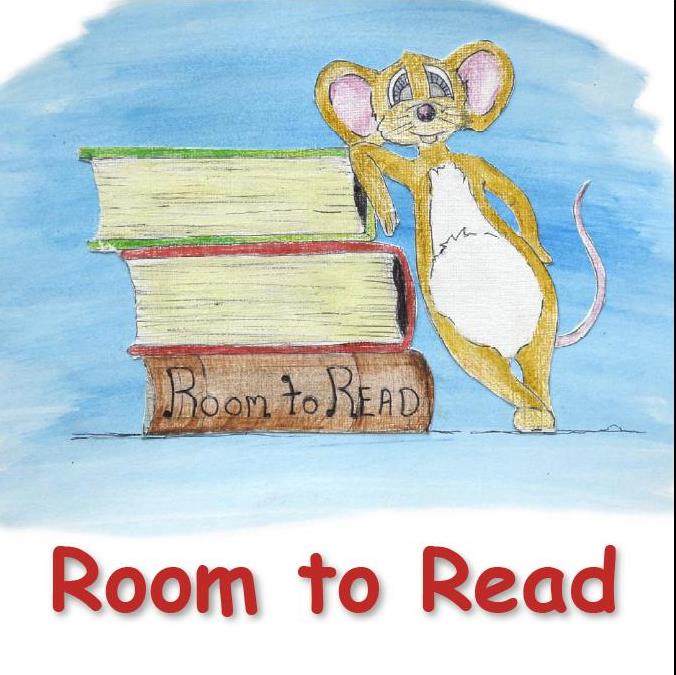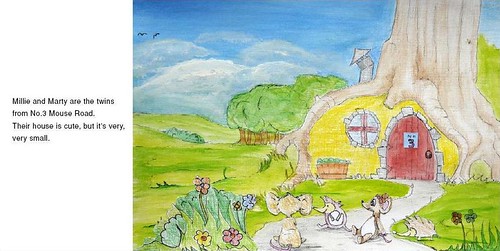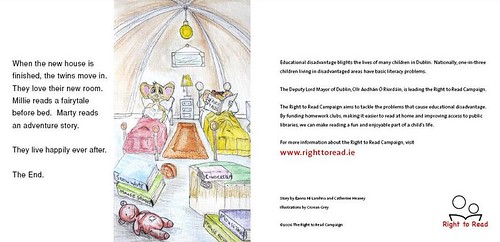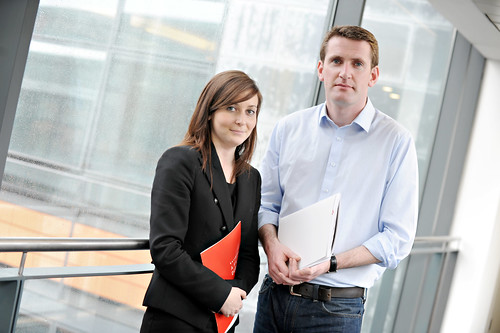For many reasons boxing makes uncomfortable viewing. The modern day sight of two young, invariably working class men slogging it for the entertainment of the celebrity set amidst the over-hyped glow of exploitative satellite television coverage doesn’t sit easily with me in many ways. One well-known sports journalist in a national newspaper has described his notepad being splattered with blood and struggling at that moment to find any justification for the spectacle he was reporting on. However, despite all this, and indeed the unfortunate whiff of scandal and corruption that lingers around the pro-boxing scene, bowing is truly the sport of champions.
Bernard Dunne is our latest offering and his victory over Englishman Esham Pickering to claim the vacant European super bantamweight title in front of a sell-out crowd at the Point Depot earlier this month was a compelling contest. His victory has already been listed as one of the highlights of the Irish sporting year, alongside the triumphs of the Munster Rugby team and Derval O Rourke, yet in many ways I feel that this victory has the potential to outshine them both. Because Bernard Dunne has the potential to be one of the great Champions of our time.
Every generation, boxing has produced a figure that has unified an often divided people behind the power, charisma and determination of this one man. Sport in general can be divisive as we have often seen. The various loyalties and tribal identities are played out on playing pitches across this concerti and every country weekly in exercises often deliberately promote division and disharmony. The bigoted dog-fight of the Rangers-Celtic clashes in Glasgow get the racist and sectarian juices flowing in Scotland and Ireland. Every weekend Gaelic fields see players lumping the heads off each other in the name of county / parish / my-side-of-the-hill-not-yours ‘pride’. Indeed, recently one of the most promising hurlers in Ireland consider retiring at the tender age of 18 years because of the mauling he received at a club match in Galway this summer. Rivalries between private fee-paying secondary schools are at fever pitch as their teams lock horns in the annual nauseating spectacle that is the Leinster Schools rugby competition. So why is the most violent sport of them all more unifying?
Mohammed Ali was widely acclaimed as the greatest sportsman of the 2oth century. However this wasn’t on the basis of his many sporting achievements. Ali managed to win the Heavyweight Championship of the World on three separate occasions, but it was his other fights that made him such a sporting legend and a true champion. At a time when the black people of America needed a figure to raise their self esteem and confidence and prove that they could aspire to their rightful place as equals in their society, Mohammed Ali spoke with their message, reached to their hearts and became a world figure that no man, however prejudiced or racist, could ignore. People were lifted by his courage and by his refusal to be anything else than himself. He understood the problems in his country and strove to change them. He was undeniably a man of his time and gave oxygen to the dreams that many in the black community held quietly in their hearts. He was a true champion in a time of great unease and change in American society.
In our own land too, when Northern streets were battlefields and television screens told the daily horror of the terrible conflict called ‘The Troubles’, both sides of the sectarian divide took time out of their hatred to cheer on one man. Barry McGuigan, the Clones Cyclone. His representation of Northern Ireland in the Commonwealth games endeared him to Unionists; his Catholic faith and his Monaghan upbringing made him the daring of Nationalists. And on packed nights in the Kings Hall in Belfast, a divided people roared their approval as ‘wee Barry’ won title fight after title fight. It didn’t last long, but for a time, Barry McGuigan distracted us, and maybe even united us when nothing else could. Northern Irish sport has always been riddled with sectarianism – that November night in Windsor Park in 1993 taught us that. Catholics generally play GAA and Protestants generally play rugby. The problem has reached such heights that an ice-hockey team is now seen as the way forward. But no matter what silverware the Belfast Giants claim over the coming years, it will never mean as much as when Barry was bobbing and weaving.
We have more since. Wayne MacCullough, the Protestant from the Shankhill Road representing Ireland at Barcelona in 1992 and bringing home silver. Francie Barrett, a member of the travelling community carrying the Irish flag at the opening ceremony in Atlanta four years later. Barrett represented a country who consistently discriminate against him yet he united people behind him. Again, like McCullough, a true champion.
My hope for Bernard Dunne is that he can do the same. Dunne does not have a fashionable address and Dublin accents like his are frequently derided in radio and television advertisements. Yet he has the potential to unite a people behind him. We are A divided people. We are an incredibly class-conscious, property-obseesed race who are fast losing whatever sense of community spirit we ever had. We need Bernard Dunne probably more than he needs us. He can remind us of the honesty of human endeavour and the power of the human spirit that has nothing to do with accent or address. He has the potential to make us re-examine our values and the gross inequalities in our land by just being himself. Maybe I am asking too much. Maybe Bernard should just be allowed box.
Well done Bernard. You’re a true champion.
Thursday, November 30, 2006
Tuesday, November 28, 2006
Planning Offenders ‘Name and Shame’ Policy adopted by Strategic Policy Committee
Cllr Aodhan O Riordain proposal for a ‘name and shame policy’ in relation to planning offenders has been adopted by the Planning, Economic Development and European Affairs S.P.C. of the City Council today.
‘The people of Dublin need to know that the planning process is fair and works equally for all people. The establishment of The Planning Information Service has helped to educate citizens about the protections that exist for them within the planning system. However many citizens are increasing concerned about the number of unauthorised developments that are apparently going unpunished throughout the city’, Cllr O Riordain said.
‘In my own constituency there have been continuous reports from concerned residents about developers sub-dividing properties into multiple unit dwellings without planning permission and renting them out to marginalized families in scenes reminiscent of Strumpet City. The ‘name and shame’ policy that I have proposed to the Strategic Policy Committee will send a strong message to all developers that unauthorised development that is not reversed will result in conviction in the courts and embarrassment in the media’, Cllr O Riordian continued.
‘For too long, residents of our city have felt that developers are getting away with breaking planning law. From now on, any person or business that is convicted in the courts will face the embarrassment of being named in advertisements in the media’, Cllr O Riordain concluded.
‘The people of Dublin need to know that the planning process is fair and works equally for all people. The establishment of The Planning Information Service has helped to educate citizens about the protections that exist for them within the planning system. However many citizens are increasing concerned about the number of unauthorised developments that are apparently going unpunished throughout the city’, Cllr O Riordain said.
‘In my own constituency there have been continuous reports from concerned residents about developers sub-dividing properties into multiple unit dwellings without planning permission and renting them out to marginalized families in scenes reminiscent of Strumpet City. The ‘name and shame’ policy that I have proposed to the Strategic Policy Committee will send a strong message to all developers that unauthorised development that is not reversed will result in conviction in the courts and embarrassment in the media’, Cllr O Riordian continued.
‘For too long, residents of our city have felt that developers are getting away with breaking planning law. From now on, any person or business that is convicted in the courts will face the embarrassment of being named in advertisements in the media’, Cllr O Riordain concluded.
Monday, November 27, 2006
DUBLIN CITY COUNCIL TO ADOPT €1 MILLION 'RIGHT TO READ' PACKAGE AS PART OF ESTIMATES TONIGHT
DUBLIN CITY COUNCIL TO ADOPT €1 MILLION 'RIGHT TO READ' PACKAGE AS PART OF ESTIMATES TONIGHT
STATEMENT FROM CLLR AODHAN O RIORDAIN
Deputy Lord Mayor Monday November 27th 2006Dublin City Council is expected to adopt a €1 million package aimed at addressing the objectives of the Deputy Lord Mayor's Roght to Read CAmpaign tonight.
The Right to Read Campaign, an initiative of the Deputy Lord Mayor Cllr Aodhan O Riordain is seeking council investment in three key areas in order to tackle educational disadvantage.'One in three children living in disadvantaged areas have basic reading problems and I believe the local authority has a huge role to play in tackling this issue.
The three basic steps of the Right to Read campaign concentrate on housing policy, the establishment of homework clubs and the improvement of our public libraries' Cllr O Riordain, a teacher in Sheriff Street, said today.
The Council is expected to adopt the €1 million library service package which will include:
1 extension of 6 day openings
2 social inclusion programmes
3 €385k additional book fund resources
4 historian / educational support
5 enhancements in technology
'These improvements will help us tackle a major social ill in our city and I am delighted that the City Councillors and the City Manager have responded to the Right to Read Campaign in such a positive manner' Cllr O Riordain continued.
The campaign is to be presented to Dublin South County Council on December 11th.
STATEMENT FROM CLLR AODHAN O RIORDAIN
Deputy Lord Mayor Monday November 27th 2006Dublin City Council is expected to adopt a €1 million package aimed at addressing the objectives of the Deputy Lord Mayor's Roght to Read CAmpaign tonight.
The Right to Read Campaign, an initiative of the Deputy Lord Mayor Cllr Aodhan O Riordain is seeking council investment in three key areas in order to tackle educational disadvantage.'One in three children living in disadvantaged areas have basic reading problems and I believe the local authority has a huge role to play in tackling this issue.
The three basic steps of the Right to Read campaign concentrate on housing policy, the establishment of homework clubs and the improvement of our public libraries' Cllr O Riordain, a teacher in Sheriff Street, said today.
The Council is expected to adopt the €1 million library service package which will include:
1 extension of 6 day openings
2 social inclusion programmes
3 €385k additional book fund resources
4 historian / educational support
5 enhancements in technology
'These improvements will help us tackle a major social ill in our city and I am delighted that the City Councillors and the City Manager have responded to the Right to Read Campaign in such a positive manner' Cllr O Riordain continued.
The campaign is to be presented to Dublin South County Council on December 11th.
Thursday, November 16, 2006
BALLYBOUGH SHOOTING CONDEMNED
I condemn absolutely the shooting in Clonliffe Avenue in Ballybough which took place this week in which a man was murdered.
As a resident of Clonliffe Avenue I am appalled that this action took place in this quiet and close-knit community. Nobody deserves to die in this fashion and no community deserves to have this type of incident occur on their doorsteps. The location of the shooting is a popular play area for local children and it is particularly disgusting that the murderers choose to gun down an apparently defenseless man at a spot where children play football everyday. I am calling on anyone with information on the shooting to contact the Gardai immediately so this sort of incident does not happen again.
As a resident of Clonliffe Avenue I am appalled that this action took place in this quiet and close-knit community. Nobody deserves to die in this fashion and no community deserves to have this type of incident occur on their doorsteps. The location of the shooting is a popular play area for local children and it is particularly disgusting that the murderers choose to gun down an apparently defenseless man at a spot where children play football everyday. I am calling on anyone with information on the shooting to contact the Gardai immediately so this sort of incident does not happen again.
DEPUTY MAYOR DELIVERS FREE BOOKS TO INNER CITY SCHOOLS THIS WEEK AS PART OF RIGHT TO READ CAMPAIGN
Statement from Cllr Aodhan O Riordain
Thursday November 16th 2006
As part of his Right to Read Campaign, Deputy Lord Mayor Cllr Aodhan O Riordain is delivering free books to schools across the inner city and beyond this week. 'The book was written by Eanna Ni Lamhna and I'm delighted to be in a position to give a free book to school children right across Dublin.' he said. 'Thr Right to Read Campaign is focused on promoting improvements in housing policy, accessiblity to public libraries and the establishment of homework clubs across the city'. he continued. 'I hope all children read, and enjoy, Eanna's story. The Right to Read campaign is determined to tackle disadvantage education and needs public support. More information can be obtained at www.righttoread.ie.' he concluded.
Thursday November 16th 2006
As part of his Right to Read Campaign, Deputy Lord Mayor Cllr Aodhan O Riordain is delivering free books to schools across the inner city and beyond this week. 'The book was written by Eanna Ni Lamhna and I'm delighted to be in a position to give a free book to school children right across Dublin.' he said. 'Thr Right to Read Campaign is focused on promoting improvements in housing policy, accessiblity to public libraries and the establishment of homework clubs across the city'. he continued. 'I hope all children read, and enjoy, Eanna's story. The Right to Read campaign is determined to tackle disadvantage education and needs public support. More information can be obtained at www.righttoread.ie.' he concluded.
Sunday, November 05, 2006
Right to Read campaign to be presented to Dublin City Council
The Right to Read Campaign Proposals are to be presented to Dublin City Council for adoption this Monday 6th November. The campaign is seeking Local Authorities to accept their responsibility in tackling educational disadvantage and our low child literacy levels by adopting the three basic steps of the Campaign.
The three steps are as follows: improvement of housing policy to enable children space to do their homework; the establishment of city-wide homework clubs; and increased opening hours for our local authority libraries.

The campaign, launched last Friday, is to be presented to Councils nationwide over the coming months and is seeking provision within the budgets of the various councils to achieve the three steps.
Literacy levels in Ireland are depressingly low. One in three children in disadvantaged areas have basic literacy problems and 23% of our adult population are functionally illiterate. This scandal has to change, and the local authority has a massive role in changing it.
Every local authority home must have the basic space within its bedrooms to allow children space to do their homework. Every local authority estate must have a homework club where trained Youth Development Workers manage and run homework clubs. Every local authority must have its libraries open in the evening time and at the weekend and not close on Saturdays as happens in far too many instances.
A package of €1,2 million is due to be made available in the Dublin City Council estimates to make the Right to Read campaign proposals a reality. I am placing these proposals before the City Council seeking all party support for this extremely important campaign.


Larger versions of the booklet can be found here and here.
The three steps are as follows: improvement of housing policy to enable children space to do their homework; the establishment of city-wide homework clubs; and increased opening hours for our local authority libraries.

The campaign, launched last Friday, is to be presented to Councils nationwide over the coming months and is seeking provision within the budgets of the various councils to achieve the three steps.
Literacy levels in Ireland are depressingly low. One in three children in disadvantaged areas have basic literacy problems and 23% of our adult population are functionally illiterate. This scandal has to change, and the local authority has a massive role in changing it.
Every local authority home must have the basic space within its bedrooms to allow children space to do their homework. Every local authority estate must have a homework club where trained Youth Development Workers manage and run homework clubs. Every local authority must have its libraries open in the evening time and at the weekend and not close on Saturdays as happens in far too many instances.
A package of €1,2 million is due to be made available in the Dublin City Council estimates to make the Right to Read campaign proposals a reality. I am placing these proposals before the City Council seeking all party support for this extremely important campaign.


Larger versions of the booklet can be found here and here.
Thursday, November 02, 2006
Right to Read campaign launched
A campaign to help improve childhood literacy across Dublin was launched by the City’s Deputy Lord Mayor tomorrow.
The Right to Read Campaign is being led by the Deputy Lord Mayor, Cllr Aodhán Ó Ríordáin, and is supported by Barnardos, SIPTU, INTO, TUI, ASTI and NALA.
The campaign has identified three areas for funding and policy improvements that can be undertaken at local authority level to deliver better conditions in which children can read and learn. These include homework clubs, library services and housing.
As part of the campaign, a website has been created (www.righttoread.ie) which allows members of the public to sign-up in support of the campaign. In addition, a story book entitled Room to Read – which demonstrates some of some of the conditions that result in education disadvantage - was unveiled at the launch. The book, which was written by boradcaster Eanna Ni Lamhna, will be distributed at public transport stations in Dublin over the coming week.
According to Cllr Aodhán Ó Ríordáin,“as a primary school teacher in the North Inner City, I am only too well aware of the factors that contribute to poor literacy levels and educational disadvantage among children. It is unacceptable that despite the resources now at our disposal, 11% of our children are reaching junior cert age with only very basic reading levels.
“I have decided to champion the issue of literacy during my term as Deputy Lord Mayor. To date, I have obtained support from a variety of organisations to mount this campaign, and I am also securing support from my colleagues on Dublin City Council.
“The actions that have been identified by the campaign are not rocket science: We want home work clubs to be run by professionally trained tutors, so that children get the appropriate support. We want libraries to be more child-friendly, with more appropriate opening hours, so that children can learn to enjoy reading. We want local authority and social housing to include sufficient space for children to undertake homework in their bedroom or another quite area in their home.
“It is my expectation that, once the demands of the Right to Read Campaign have been accepted by Dublin City Council, we can roll the campaign out nationally. Every local authority has its disadvantaged areas where children do not have the conditions and support to improve their literacy levels.
“The relatively inexpensive and practical recommendations of the Right to Read Campaign can have a very significant impact on tackling educational disadvantage. Early intervention in childhood literacy will have a very positive impact on a child’s education and employment prospects later in life. A good level of literacy can also have a positive impact on a child’s self-esteem and confidence,” added Cllr Ó Ríordáin.
Adding her voice in support of the Right to Read Campaign, Eanna Ni Lamhna, said, “as well as being critical in informing future educational and career opportunities for children, reading is great fun and offers lots of entertainment possibilities at home, in homework clubs and in the classroom.
“Children need to be helped and supported in reading, so that they can enjoy the benefits and reap the rewards. No child, in this day and age, should be prohibited from enjoying reading because of barriers such as poor access to good books or a lack of suitable space in their home where they can enjoy reading as a past-time.
“The Right to Read Campaign sheds light on the fact that so many children in this country suffer educational disadvantage. This stifles their capacity to fully participate in the classroom and reduces their chances of accessing third level education later in life.
“The little story that I wrote for the campaign material for the Right to Read Campaign demonstrates that when youngsters are given the right environment in which they can enjoy reading they will embrace it.
“I hope that the Right to Read Campaign will extend beyond Dublin City and that it becomes a focus for local authorities and the powers that be throughout the country,” added Eanna Ni Lamhna.
The Right to Read Campaign is being led by the Deputy Lord Mayor, Cllr Aodhán Ó Ríordáin, and is supported by Barnardos, SIPTU, INTO, TUI, ASTI and NALA.
The campaign has identified three areas for funding and policy improvements that can be undertaken at local authority level to deliver better conditions in which children can read and learn. These include homework clubs, library services and housing.
As part of the campaign, a website has been created (www.righttoread.ie) which allows members of the public to sign-up in support of the campaign. In addition, a story book entitled Room to Read – which demonstrates some of some of the conditions that result in education disadvantage - was unveiled at the launch. The book, which was written by boradcaster Eanna Ni Lamhna, will be distributed at public transport stations in Dublin over the coming week.
According to Cllr Aodhán Ó Ríordáin,“as a primary school teacher in the North Inner City, I am only too well aware of the factors that contribute to poor literacy levels and educational disadvantage among children. It is unacceptable that despite the resources now at our disposal, 11% of our children are reaching junior cert age with only very basic reading levels.
“I have decided to champion the issue of literacy during my term as Deputy Lord Mayor. To date, I have obtained support from a variety of organisations to mount this campaign, and I am also securing support from my colleagues on Dublin City Council.
“The actions that have been identified by the campaign are not rocket science: We want home work clubs to be run by professionally trained tutors, so that children get the appropriate support. We want libraries to be more child-friendly, with more appropriate opening hours, so that children can learn to enjoy reading. We want local authority and social housing to include sufficient space for children to undertake homework in their bedroom or another quite area in their home.
“It is my expectation that, once the demands of the Right to Read Campaign have been accepted by Dublin City Council, we can roll the campaign out nationally. Every local authority has its disadvantaged areas where children do not have the conditions and support to improve their literacy levels.
“The relatively inexpensive and practical recommendations of the Right to Read Campaign can have a very significant impact on tackling educational disadvantage. Early intervention in childhood literacy will have a very positive impact on a child’s education and employment prospects later in life. A good level of literacy can also have a positive impact on a child’s self-esteem and confidence,” added Cllr Ó Ríordáin.
Adding her voice in support of the Right to Read Campaign, Eanna Ni Lamhna, said, “as well as being critical in informing future educational and career opportunities for children, reading is great fun and offers lots of entertainment possibilities at home, in homework clubs and in the classroom.
“Children need to be helped and supported in reading, so that they can enjoy the benefits and reap the rewards. No child, in this day and age, should be prohibited from enjoying reading because of barriers such as poor access to good books or a lack of suitable space in their home where they can enjoy reading as a past-time.
“The Right to Read Campaign sheds light on the fact that so many children in this country suffer educational disadvantage. This stifles their capacity to fully participate in the classroom and reduces their chances of accessing third level education later in life.
“The little story that I wrote for the campaign material for the Right to Read Campaign demonstrates that when youngsters are given the right environment in which they can enjoy reading they will embrace it.
“I hope that the Right to Read Campaign will extend beyond Dublin City and that it becomes a focus for local authorities and the powers that be throughout the country,” added Eanna Ni Lamhna.
Subscribe to:
Posts (Atom)



